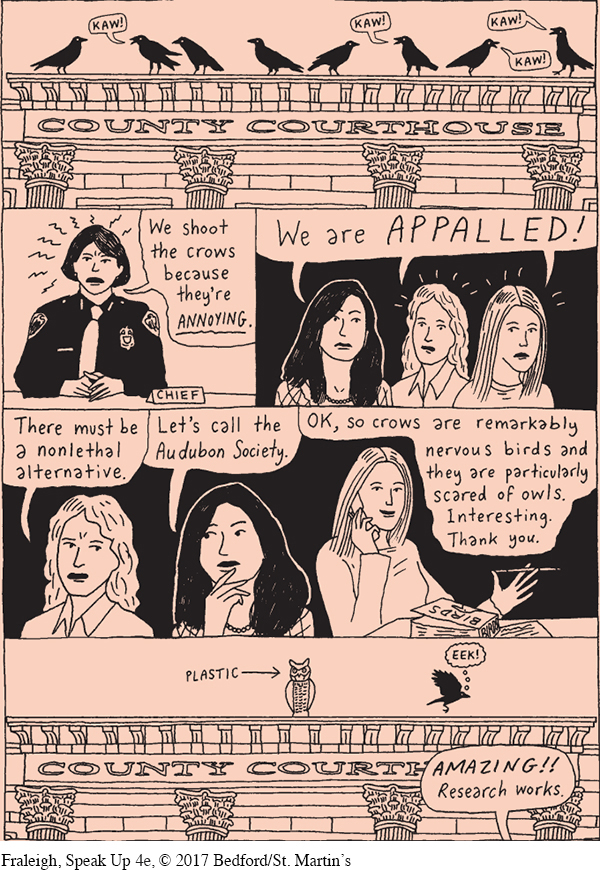Chapter 7 RESEARCHING YOUR SPEECH

Look for the  and
and  throughout the chapter for adaptive quizzing and online video activities.
throughout the chapter for adaptive quizzing and online video activities.
Page 187
“It is not a fact until you prove it to the audience.”
One afternoon, Katie, Mandeep, and Sherri were strolling by their local courthouse after lunch when they noticed a police officer shooting at crows sitting on top of the building. They were appalled and soon called the police department to complain. The police chief explained that this practice was warranted because the crows were a public nuisance: they were noisy and annoying, they left droppings that posed a health risk, and they made it impossible to keep the courthouse steps clean. The crows had to go, the chief said, and other solutions (such as catching and releasing) were just too expensive.
Unconvinced by this explanation, the three students decided to take action. They gathered dozens of signatures on petitions and presented them to city officials, who invited them to speak about the subject at a city council meeting. The police chief also would attend to present her side of the issue.
The students knew that this was their one chance to prove their case and that they had to be prepared to respond to the police chief’s claims. To that end, they decided to find out whether the crows indeed constituted a health hazard, whether other towns had found alternatives to shooting them, and how effective and costly these alternatives were.
Page 188
In other words, these students set out to research their presentation so that they could convince the city council to end the practice of shooting crows. When you research well, your speeches can have the same effect. In Chapter 7, we begin with a discussion of why research is a vital step in speech preparation, and then we cover how you can set up a research plan. Next, we consider how to evaluate the credibility of your research sources, followed by an explanation of how to best conduct research using library sources, online materials, and interviews. Finally, we discuss how to present the information you have researched in your speech.